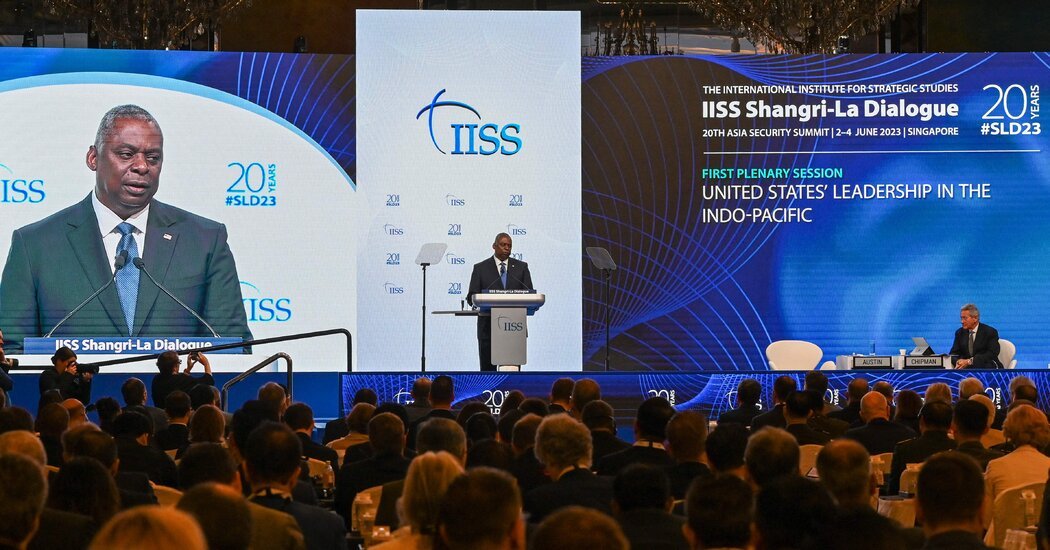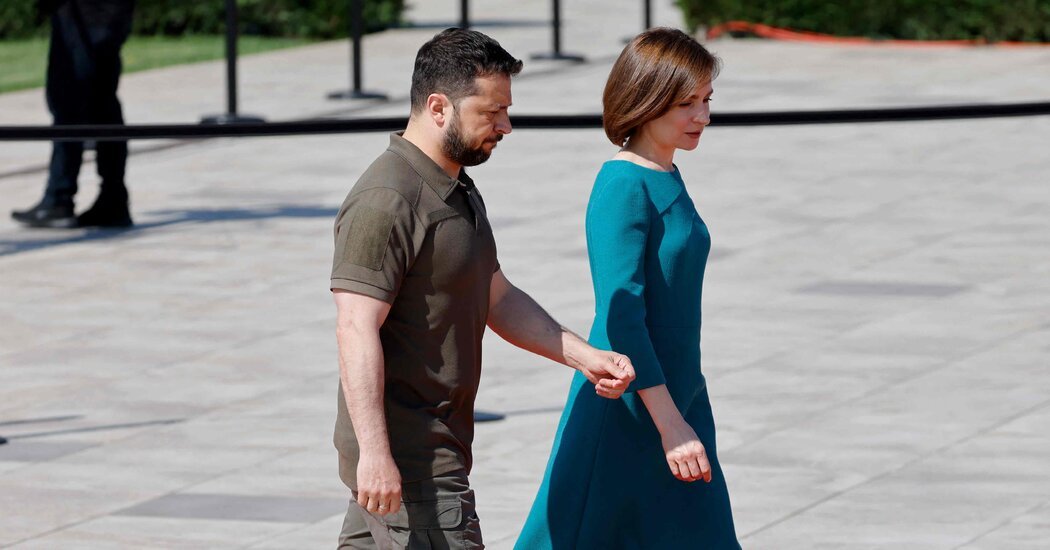One day after the Kremlin accused Ukraine of deploying two drones to assassinate President Vladimir V. Putin, there were still deep questions about an episode that is adding to tensions ahead of an expected Ukrainian counteroffensive.
President Volodymyr Zelensky of Ukraine vehemently denied any involvement in an attack on the Kremlin, which would be an audacious strike on the fortresslike complex in the heart of Russia’s capital. He accused Moscow of orchestrating the explosions to stir up public support ahead of “a large-scale terrorist provocation.”
Here’s what we know so far about the episode and its aftermath.
What happened?
Videos verified by The New York Times showed two explosions 15 minutes apart above the Kremlin, shortly before 2:30 a.m. on Wednesday. The blasts appeared to be caused by drones.
One explosion caused a brief fire, although it was unclear whether the drones exploded as planned or were shot down. It was not possible to determine from where they would have been launched.
About twelve hours after the explosions, the Kremlin issued a rare statement saying that it had foiled an “attempt on the life of the president,” who was not in the Kremlin at the time. The Kremlin houses the Russian Senate and an apartment where Mr. Putin occasionally stays, among other offices.
There were no casualties or serious damage, the Kremlin said.
What are Russia and Ukraine saying?
Both sides have blamed the other for the explosions.
In its unusually lengthy statement, the Russian Ministry of Defense declared on Wednesday that it reserved the right to take “retaliatory measures where and when it sees fit.” The statement did not include any evidence of Ukrainian involvement.
Ukrainian government and military intelligence officials, who typically follow a policy of deliberate ambiguity about strikes on Russian territory, have said directly that they had no role in any strike against the Kremlin. They have accused Russia of manufacturing the incident to justify increased attacks on Ukraine or to drum up public support for its war.
Dmitri S. Peskov, the spokesman for President Vladimir V. Putin, claimed on Thursday that the United States bore responsibility because it was “dictating” to Ukraine which targets to strike. White House spokesman John F. Kirby immediately rejected the accusation, saying of the incident: “Whatever it was, it didn’t involve us.”
Russia’s claims have left U.S. intelligence officials circling around slim facts to determine what happened and why Moscow might risk embarrassment by giving so much attention to what amounts to another security failure amid its well-publicized military struggles in Ukraine.
“We simply don’t know,” Secretary of State Antony J. Blinken said on Wednesday, adding: “I would take anything coming out of the Kremlin with a very large shaker of salt.”
What could happen next?
The incident could serve as a pretext for Mr. Putin to escalate the war somehow, possibly by striking government buildings in Kyiv or trying again to decapitate the Ukrainian government.
Kremlin officials have hinted repeatedly at the possibility of using nuclear weapons, and war hawks have pushed for another draft to increase troop numbers.
On Thursday, Ukrainian air defenses shot down a volley of Russian drones and missiles launched at Kyiv and Odesa, in the latest of a series of strikes against cities and town in recent days. In Odesa, the Ukrainian military published images suggesting some drones bore handwritten messages reading “For Moscow” and “For the Kremlin.”
Tensions are particularly high as Kyiv prepares a counteroffensive to retake territory in eastern and southern Ukraine that was seized by Russia. Ukrainian forces are readying tens of thousands of soldiers and escalating strikes on Russian targets, including in occupied Crimea. And on Tuesday, Russia will commemorate Victory Day, a major holiday marking the Soviet triumph in World War II.
Even with the brutality of its full-scale invasion of Ukraine, Moscow has ratcheted up violence in response to major attacks on Russian-controlled territory. Last fall after an explosion that damaged a key bridge between Russia and Crimea, Moscow initiated a campaign of airstrikes against Ukrainian civilian infrastructure that cut off heat and electricity to millions of Ukrainians as temperatures plummeted.





